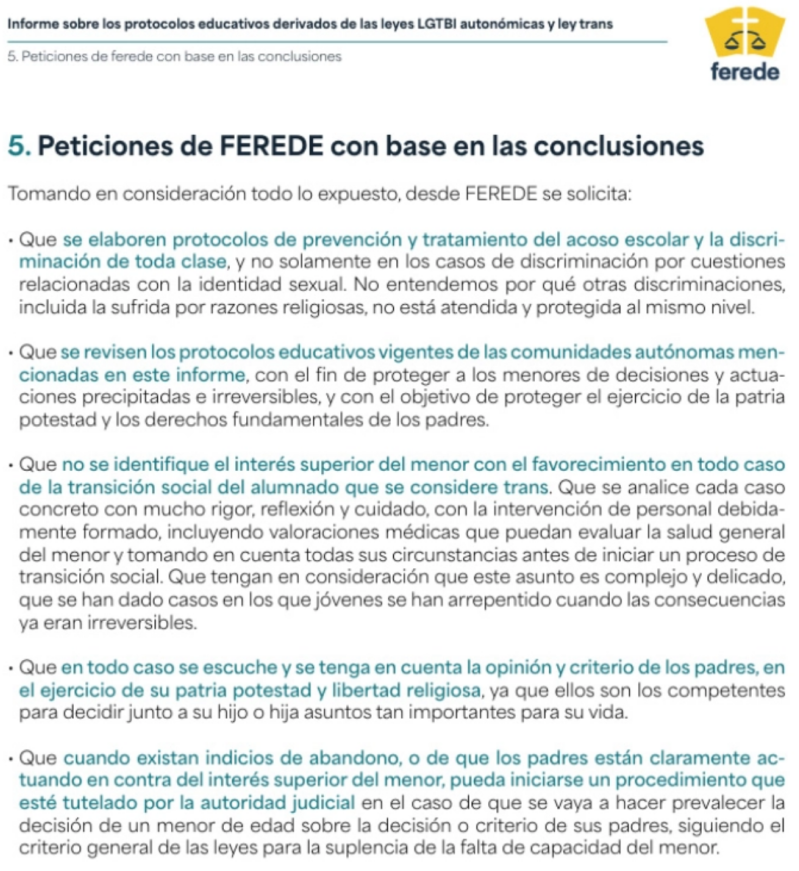
The Federation of Evangelical Religious Entities of Spain (FEREDE) has published a detailed report on the educational protocols derived from regional LGBTI laws and Spain’s trans law. The document analyzes the impact of these regulations on parents’ rights to educate their children in accordance with their convictions, as well as on the exercise of parental authority.
The report highlights that in at least 14 autonomous communities, educational protocols have been implemented to support minors who identify as transgender. In most cases, these protocols allow the social transition process for students to begin without parental consent, generating significant controversy regarding the rights of families.
One of the most sensitive aspects of the FEREDE analysis is the possibility that teachers or educational centers may initiate the protocol without any parental involvement. In communities such as Aragon, La Rioja and Navarre, the report warns that a parent's refusal to accept their child’s transition could lead to the intervention of social services, viewing the opposition as a form of neglect or abuse.
Another point of concern is the lack of medical or psychological evaluation prior to the activation of the protocol. According to the report, in most autonomous communities, a professional assessment is not required to determine whether a minor is in a position to make a decision about their gender identity. This, the report states, could result in irreversible processes with unknown consequences for the child’s development.
“There is a tendency to identify social transition with the best interests of the child, without considering the major repercussions that a process of this nature can have on a minor, assuming that social transition is always positive and beneficial for any minor who shows signs of disagreement with their own gender,” the report states.

The report cites warnings from several international medical organizations regarding the negative effects of hormone blockers and other medical treatments used in the transition process for minors. However, in Spain, FEREDE says the current tendency is to facilitate these processes with fewer requirements, allowing minors to self-determine their gender without thorough evaluation.
In conclusion, FEREDE is calling for a review of current protocols. It stresses the need for parental consent and evaluation by medical professionals before any intervention. The organization also urges schools to act with greater prudence and respect for the rights of families in the education of their children.
The report has reignited debate over the role of education in matters of gender identity and the autonomy of minors, pitting those who advocate for self-determination against those who seek stronger parental involvement in the process.
Read the full report (in Spanish) here.
Originally published by Diario Cristiano, Christian Daily International's Spanish edition.





